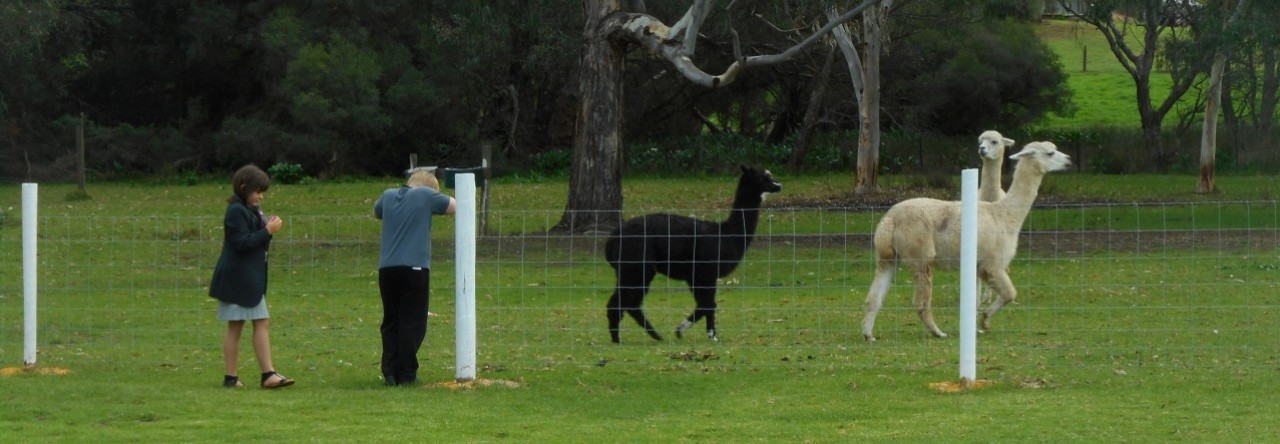Planning for an Expected Death
If you or a loved one is expecting an inevitable death, you may wish to contact a Funeral Home and discuss your arrangements with them.
If your illness will result in you being incapable of making your own decisions, plan and have an Advanced Care Directive (Living Will) completed, witnessed and make people aware of its existence. They will also need to know how to access it easily.
Spend some time preparing a folder with your preferences in it. Keep it in a handy place where people will be able to find it. Place a copy of the Funeral arrangements in it, along with a list of your favourite music and any memorabilia you may wish to include. Music, books and paintings that you may have treasured as well as tools from your sporting activities, golf clubs, fishing rods, darts and framed photos on the coffin or at the memorial service may be used. Include your insurance documents and last Will and Testament. If you do not wish to have flowers at the ceremony, where would you like the money used to buy these flowers be donated to?
Prepare a list of phone numbers and have them easily accessible.
- Support services such as Silver Chain or Hospice
- Funeral Director
- Chosen Funeral Celebrant
- Family members
- Ambulance
- GP number
When death occurs at home
If the death was expected and you had support services in place, such as Silver Chain or Hospice, notify them. They will probably be available for you to ask for help with the next steps. They will be able to call a Doctor to certify the death and will help you to organise a Funeral Home is this has not already been done. Otherwise your General Practitioner will need to certify the death.
Once the necessary authorities have been notified, take some time to be alone as a family with the deceased. Have a glass of their favourite drink, share stories and photos with friends and families. Don’t let anyone hurry you into allowing the deceased to be removed from the home. You are within your rights to ask the funeral Home to pick up the deceased at a time of your choosing.
If the death was unexpected, you may need to call an ambulance and the Police who will decide if the death needs to be investigated further.
When death occurs in a Hospital or clinical environment
The Hospital or Clinical staff will be able to provide you with the necessary support. You may be asked whether Funeral arrangements have already been made and with whom. It is important to know whether your loved one is to be buried or cremated as the paperwork requirements will differ.
Most hospitals will allow you to spend as much time as you wish with the deceased. Take this time to say your goodbyes. Say what you wish to say, cuddle them, hold them, say prayers, read stories, share photos and take your time as this may be the last time you are able to be alone with the person.
Frequently asked Questions
If we are on vacation and a death occurs what should we do, who do we contact and where?
Where is the nearest Embassy, do you have the number, contact details?
Do you have travel insurance, with sufficient and appropriate cover?
Do you have the contact details of the local Police?
Have you contact details of a local doctor?
If the loved one has died in a nursing home, what should we do first?
The nursing Home facility should have a pre and post death plan in place; do you need to contact them to find out what the procedure is and how it fits in with the resident and your wishes pre and post their death?
If the deceased is becoming unable to make decisions for themselves
Has provision for this been taken into account and an Enduring Power of Attorney or Guardianship paper been signed and witnessed correctly.
Please ensure the witnesses are not benefactors to the individual’s estate.
If there is a will; Is the whereabouts of the will known and are there executors to the estate?
Is the last will and testament confirmed as being the Last Will and Testament of the deponent?
Please ensure that those who are appointed executors to the will are aware of the responsibilities of such an appointment and they need to be prepared to be in it for the proverbial “long-haul”.
Dying at Home
Is it morbid to be thinking about death – yours or someone else’s? NO, we all have to die at some stage and being prepared is not morbid or strange, it is being sensible!
Your thoughts and ideas can be discussed with family and then written down, to be carried out in the event of your demise! Or because of family dynamics your notes of what you would like done in the event of your death can be documented preventing or reducing family conflict!
Have plans in place if you would prefer to die at home, it is feasibly possible.
Have you a pre-death plan and rosters worked out for the ever increasing care you will require? Is the room equipped for the inevitable lifting and manoeuvring required to keep you clean comfortable and washed!
Have you, your family and closest friends ever considered facing death with Aromatherapy? Using essential oils in an aroma lamp when someone is dying can be intense for the dying person, especially if they are on strong drugs that make scents more potent and difficult to tolerate. Please check with Health Care Providers that these are not contra-indicated first.
Essential oils that will encourage detachment from the physical body during transition are jasmine, rose, geranium, neroli and lavender. These oils have a gentle persuasion, almost a quiet invitation to release, rather than a demand to let go. Even frankincense, which usually is so forceful in pushing a situation towards resolution, can be soft and caring around a deathbed.
Flowers that are your favourite, if in season, can beautify the room and remind you of many pleasant occasions.
Organising a Funeral
What type of funeral service would you like? A traditional burial or cremation and a scattering of ashes with a memorial service later?
Is someone you know dying, or is at an age where tomorrow may be the last? Have you or they, ever had that “death” conversation about what you would want done after your death; is it written down?
In the event that a beloved dies expectantly or unexpectedly, communication will be the key in organising a memorial or funeral service. Each of us has different personalities, likes and dislikes; so the appointment of a final decision maker is important during this process! As you plan; gather and consult others who were close to the deceased, in some cases families are spread far and wide, and seek their opinions. A death in a family may reunite them if not in person but via SKYPE, FaceTime and other forms of social media.
Be sure to try to honour any prior expressed wishes, both spoken and written of the deceased person. It may be appropriate to play a significant song or favourite piece of music while guests are waiting for the service to begin or at the end of the service.
Funeral directors play a vital role in the collection, preparation of the body and necessary paperwork for the disposal of the body in a dignified legal way. In the event you are having a memorial service, set a date for the service, ensuring that there will be adequate time from the disposal of the body to allow people to attend the service where possible.
Ensure there are facilities for handicapped and aged people to attend or are catered for.
Place advertised details of the service in appropriate places, and include details of the funeral homes, Cemetery, time and date.
If donations are requested instead of flowers, include this in the notice.
Any other detail, such as a dress code should be briefly included in the notice.
For a Memorial service to be held in an alternative location to the funeral or after an unattended cremation, involve a Celebrant to help with the planning of a memorial service, music and rituals such as planting of trees or release of balloons, doves or butterflies etc.
Organise catering for family and friends who may wish to pay their respects after the service. You may wish to find a venue who will arrange the catering if you find that the time is limited in a Funeral Home or Cemetery Chapel. Hire a funeral reception planner or appoint someone to be at the reception venue to ensure it is open for early arrivals, and that food and drinks are ready for arrivals.
Have a clean-up crew assigned. The last thing you will want to do on an emotionally exhausting day is have to clean up!

